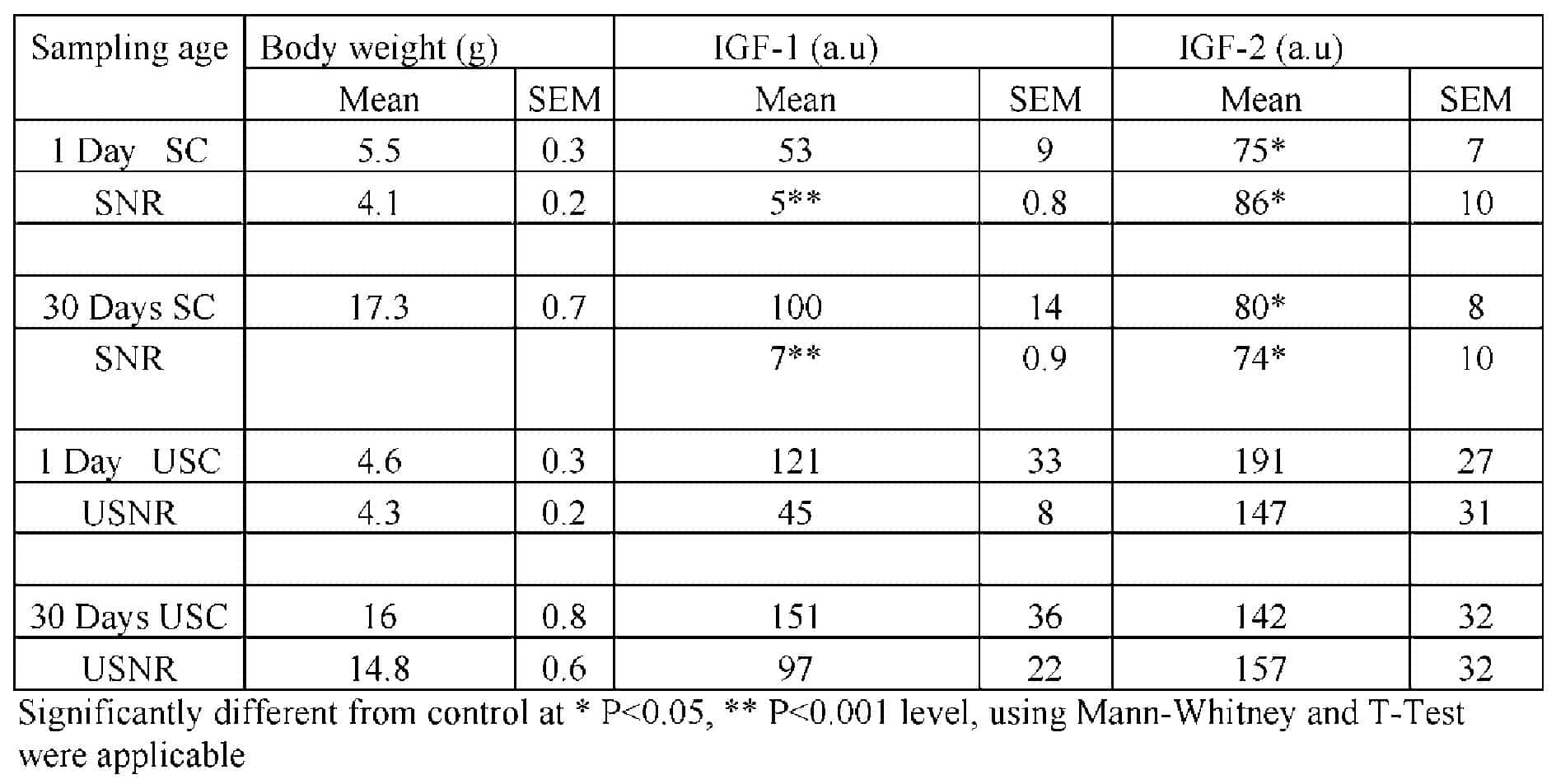Insulin-like growth factors 1 (IGF-1) and 2 are key components in fetal development, play a large role in energy balance and are primarily synthesized by the liver. Cold exposure by winter shearing has shown to promote growth and development, dependant on maternal nutrition; however the effects on IGF-1 and 2 have not been determined.
Twenty-six multiparous twin-bearing ewes of similar body weight were entered into the study, thirteen were shorn (S) during mid gestation and thirteen left unshorn (US). Six out of each group were nutrient restricted (NR; fed 50 % of total energy requirements) over the final month of gestation and seven controls (C) were fed to 100 % of requirements until term. All lambs were born spontaneously and one lamb from each ewe were then humanely euthanased (100 mg kg-1 pentobarbital sodium: Euthatal, i.v) at 1 day of age and one at 30 days of age. Tissue samples were stored at -80 °C until molecular analysis. The relative abundance of IGF-1, IGF-2 and their receptors mRNA to 18S rRNA were determined using RT-PCR.
Maternal cold exposure resulted in significantly heavier total body weight at one day in SC as compared to the US group and down regulated IGF-1 and 2 mRNA abundance, with no effect on receptor expression (data not shown).
In conclusion maternal cold exposure promotes fetal growth and at the same time compromising hepatic gene expression of IGF-1 and 2, and this effect is increased in nutrient restriction with IGF-1.
All procedures accord with current UK legislation

